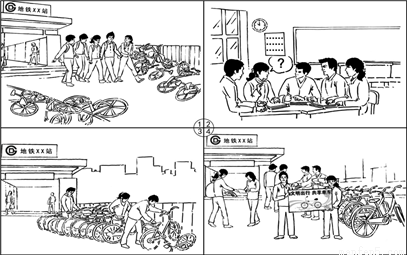题目内容
Visitors to the grounds of New College at England’s Oxford University pass under an iron gate with the advice: Manners make the man. Even after an appropriate update to: Manners make the person, it’s thought-provoking(引人深思的)—especially to today’s Americans.
When we think about what makes the person—it’s more likely the degree, the job, the salary. Since when do we count manners as a measure of success?
We do know that these would make life nicer, if more tolerable. However, we forget or overlook our manners. So , it seems, does everyone else—including, unluckily, our children.
As a university president, one of my great joys is to visit our campuses and see our students, though we’re separated by different generations, interests, and, of course dressing, each student tells me something within the first few minutes that we meet: whether he or she has been taught manners. I sense this in different ways: through her words or her gestures, in the way she listens or how he refers to friends and faculty, how she greets and says goodbye, how he responds when an elderly person enters the room.
In the absence of manners, however, I make some allowances. For instance, the many ethnic(种族的)groups that students represent often have different explanations of what makes up good manners. In other cases, some students may reject what they’ve learned to break from their parents and be accepted by other students. Whether students are being different or openly opposing, a recent experience I had with them tells me that there’s some hope for reviving and good manners.
Good manners don’t just guarantee acceptance. Good manners open doors to deeper connections and more meaningful roles in our society. Good manners are gentle signals that show we care about one another and allow us to relate to another person in a thoughtful way but at a respectable distance.
1.Which of the following is seldom a mark of success to people today?
A. Handsome income. B. An academic degree.
C. High ranks in the office D. Polite behavior.
2.What does the underlined part “make some allowances” in Paragraph 4 probably mean ?
A. treat the absence of manners differently
B. reject the absence of manners
C. oppose bad manners somehow
D. partly permit being in the absence of manners
3.Which of the following is the benefit by good manners?
A. Good manners makes people thoughtful
B. Good manners help deeper connections with others
C. Good manners guarantee acceptance of ourselves
D. Good manners inspire people to care about one another


 ),并在其下面写出该加的词。
),并在其下面写出该加的词。